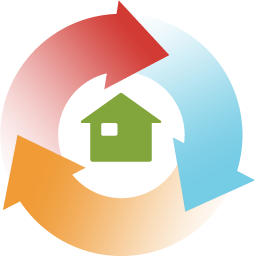Framework Project Launches New Phase of Work to Support a More Equitable Homelessness Response
Everyone deserves a safe place to live, regardless of their race, income, disability status, or zip code. But more than half a million people live in shelters, cars, or on the streets because they can’t afford a home, and many more are on the brink of losing their housing. Among people who are unhoused, a disproportionate number are people of color – 37% are Black, 24% are Latine, and 3% are Native American, when these populations only make up 13%, 19% and 1% of the U.S. population, respectively, as a whole. These inequities permeate the homelessness response system.
The nation’s homelessness assistance providers, working in cash-strapped environments, are often forced to make life-and-death decisions about who receives shelter, housing, and other services – and who doesn’t. This is where the work of the Framework for an Equitable Homelessness Response partnership comes in: providing system leaders a structure to make these difficult choices in the most equitable manner possible.
What the Framework Partnership Is and Does
In the spring of 2020, an unprecedented partnership of national organizations and leaders worked in collaboration to launch and lead the Framework for an Equitable COVID-19 Homelessness Response. This group created a policy and decision-making framework to help communities thoughtfully invest incoming federal resources and build momentum for stronger, more equitable homelessness response systems long-term.
During this time, many providers were thrust into short-term response: the COVID-19 pandemic undermined the health and safety of people experiencing or at risk of homelessness, and the subsequent economic turmoil exacerbated chronic and unsheltered homelessness. And because of our nation’s long and ongoing legacy of discriminatory housing policies and practices, Black, Indigenous, people of color, and people with disabilities were particularly at risk to the health and economic impacts of the pandemic. The Framework partners sought guidance from people with lived expertise through working groups and listening sessions and created a suite of tools to guide communities in making equity-based decisions during the pandemic so that relief resources didn’t only address the immediate crisis but set up structures to realize long term improvements.
Entering A New Phase
The Framework team’s work continues: the partnership is now launching a new phase of work to support communities in designing and implementing a more equitable homelessness response system.
We both moved into new roles in 2022, but we remain committed to this partnership. Now renamed the Framework for an Equitable Homelessness Response, we’re excited that the project is entering a new stage of work, featuring an even more expansive collaboration of partners committed to working together towards equity. The Framework partners believe everyone facing homelessness should be swiftly met with compassion, respect, and the resources they need to secure permanent housing.
In 2023 and 2024, the Framework project will focus on five action areas driven by shared values and the goal of helping communities build on lessons learned during the pandemic response, advance equity, and reduce homelessness:
Ending unsheltered homelessness using and evidence-based housing and public health strategies.
Reimagining and transforming approaches to sheltering people experiencing homelessness to adopt more welcoming and effective models.
Expanding the availability of safe, accessible, affordable housing and the supportive services people need to access and maintain housing.
Advancing diversion and prevention strategies to minimize entries into homelessness.
Strengthening systems for a more equitable and just future.
While the field will need significant investments and policy changes to end homelessness in America, the work communities do now can pave the way for transformational change. The Framework partners are committed to working closely with communities and people with lived expertise to further distill those lessons, respond to current challenges, align their efforts with the federal plan to end homelessness, and build momentum in the movement for housing justice. Learn more about the work we have planned here.

